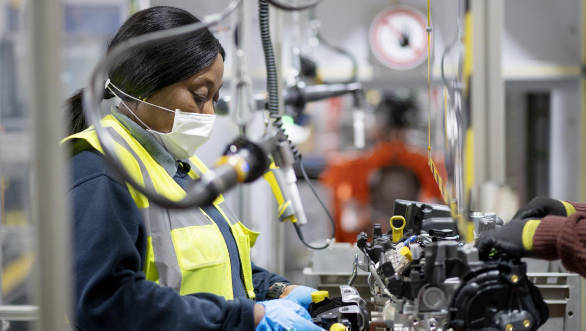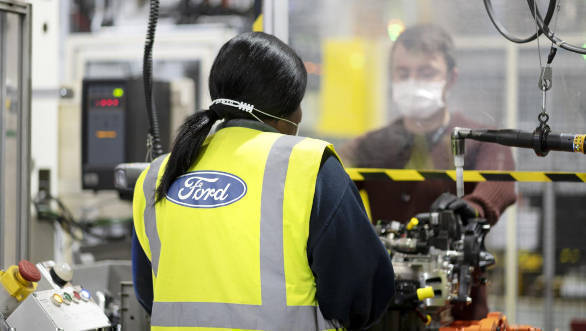Ford Dagenham and Bridgend Engine plants in the U.K. resume operations from today
Ford announced resuming operations at UK with two of its engine plants, Dagenham Engine Plant in Essex and Bridgend Engine Plant in South Wales, restarting operations. Further, the company will also restart work at its Valencia engine plant in Spain this week. The company mentions that with the restarting of operations at its U.K. plants, all of the Ford's European manufacturing centres will resume work. While a small batch of employees have already been working at the above mentioned U.K. plants, additional non-production employees whose role needs specific equipment that is only available at the manufacturing facility, have started joining back from May 4.

However, the company has ensured that the non-production workforce who can continue working from a remote location will continue to do so, until further instructions. "As we return to work at our two engine plants in the U.K., our key priority is the implementation of Ford's global standards on social distancing and strengthened health and safety protocols to safeguard the well-being of our workforce," said Graham Hoare, chairman, Ford of Britain.
Ford's Bridgend Engine Plant, with an approximate workforce strength of 1,700 manufactures 1.5 L I4 EcoBoost engine used in the Focus, Kuga, Mondeo, S-MAX, Galaxy; 1.5 L I3 EcoBoost engine used in the Fiesta ST, Focus as well as 3.0 L V6 supercharged and 5.0 L V8 naturally aspirated and supercharged, that are supplied to other OEMs. On the other hand, the Dagenham Engine Plant, with its approximate 1,830 employees makes 1.4 L Duratorq TDCi for the Fiesta and Focus; 1.5L / 1.6 L Duratorq TDCI for the B-MAX, 1.6 L Duratorq TDCi for the Fiesta, B-MAX, Focus, C-MAX, Grand C-MAX, Ecosport;1.8 L Duratorq TDCi for Transit Connect, Focus (FSAO) and 2.2 L Duratorc TDCi offered in the Transit.

Ford claims that its comprehensive set of global standards on social distancing and employee health and safety exceed the UK Government's current guidance actions, and the same will be applicable across all the facilities in the U.K. These include anyone entering a Ford facility to use a company-provided face mask, and a face shield in select manufacturing positions and other positions where social distancing cannot be met, all persons entering a Ford facility to have their body temperature checked on entry with scanning equipment that meets any local or national regulations and restrictions, completion of a daily, wellness self-assessment process to confirm employee fitness and readiness for work before entering a Ford facility, redesigning of work areas to ensure social distancing guidelines are maintained and phased return to work to reduce employee density in buildings and on production lines. Additionally, Ford will provide all employees with a personal "care kit". The care kits include disposable face masks, reusable thermometer and other hygiene items.
Ford also confirmed that it will continue to build ventilator sub-assemblies for the VentilatorChallengeUK Consortium which is supplying the National Health Service with the much-needed units. The facility used in the assembly of the ventilators is separate from the main engine plant buildings at Dagenham and has no impact on engine production. The company is also producing face masks for its U.K. employees and those across its facilities in Europe to reduce demand on stretched supply chains for personal protection equipment also needed by medical services such as the National Health Service and other industries.

"From building sub-assemblies for the VentilatorChallengeUK Consortium at Dagenham, to manufacturing face masks at our Dunton Campus, and from loaning in excess of 200 vehicles to more than 40 organisations including 10 National Health Service ambulance trusts, to those in our workforce engaged in supporting their communities in a wide range of actions, Ford employees have made a valuable contribution to this country's fight against Coronavirus." said Graham Hoare.














